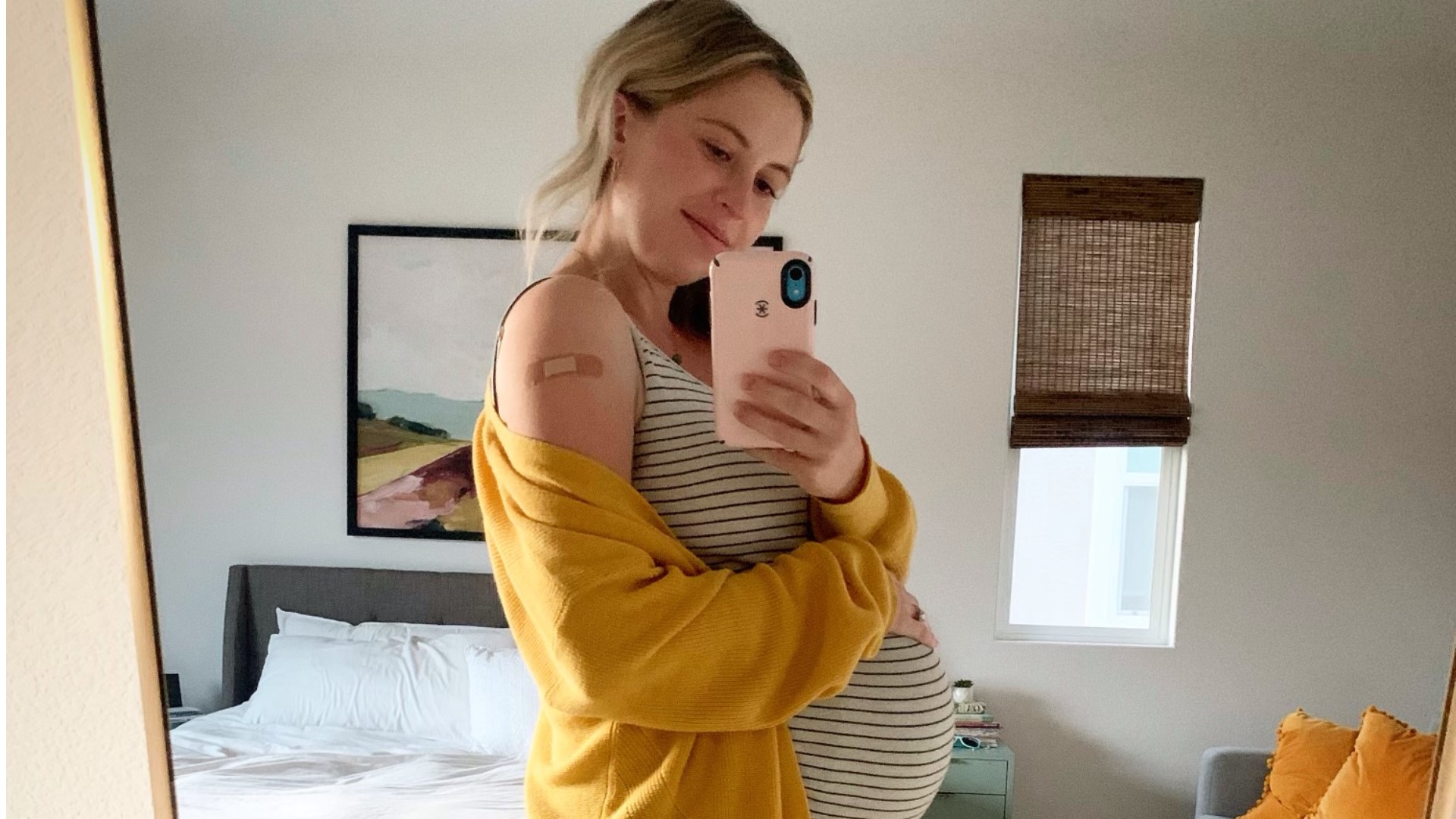SACRAMENTO, Calif. — Madeline Anderson recently had a new baby, but when she was pregnant, she made the choice to get a vaccine. She is a nurse-midwife and wanted to make sure she and her baby were protected.
“I was especially worried about getting COVID while I was pregnant because there are known risks,” Anderson said. “For me, the benefits outweighed the theoretical risks because I knew the vaccine hadn’t been studied on pregnant people yet.”
Anderson said she felt flu-like symptoms for 24 hours with her second dose. Otherwise, she didn’t experience any side effects.
A new American Journal of Obstetrics and Gynecology study found expecting and breastfeeding mothers who choose to get the vaccine are passing antibodies to their babies.
Antibodies counter infection. The specific antibody discussed in the study is called IGG.
“It’s the smallest antibody and it can easily cross the placenta. What they found is that with the common vaccination they gave women who are pregnant there was an intense reaction in the women by producing a lot more antibodies than they expected,” UC Davis Chief of Obstetrics Dr. Herman Hedriana said. “Not only are you seeing immunity in the mother, you’re also providing the baby antibodies,”
Out of the women studied, those antibodies were found in their baby’s bloodstream. Although there are unknown factors on how the vaccine will affect babies and the long-term effects from it, Hedriana said there’s something important for pregnant women to remember.
“With pregnancy, having a viral infection is really bad because pregnant women are prone to upper respiratory tract infection. So, the likelihood of pneumonia is very high.”
Anderson said the new findings in the AJOG study reassured her in her choice, but it’s up to other moms to do their research. The CDC also recommends new and expecting mothers talk with their doctor before making that choice.
“It’s every person’s decision to get the vaccine or not so you should do it if you feel comfortable,” she said.



















